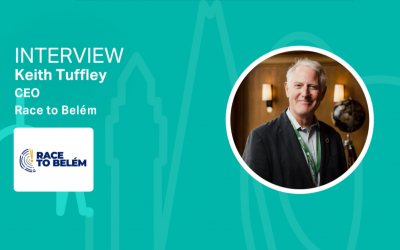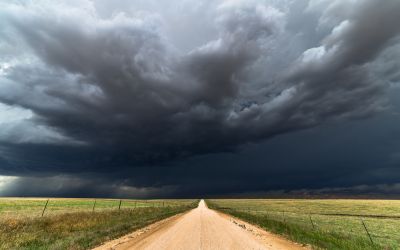Campaign urges Governments at next year’s COP to back compulsory climate education and literacy
EARTHDAY.ORG has launched a global campaign aimed at ensuring that all students receive quality, wide-ranging, climate education in schools across all grade levels and disciplines.

EARTHDAY.ORG has launched a global campaign aimed at ensuring that all students receive quality, wide-ranging, climate education in schools across all grade levels and disciplines.
The campaign encourages governments attending the crucial United Nations climate summit in 2021 to make climate change and climate literacy a core feature of school curriculum across the globe.
In addition to EARTHDAY.ORG, early backers range from trade unions and teachers’ unions to environmental organizations, NGOs, and Mayors from around the globe such as the International Trades Union Confederation, National Wildlife Federation, and Labor Network for Sustainability.
“At COP26, we need stepped up action and ambition right across the Paris Agreement, and that includes ambition in respect to climate education. We need to better educate our children and youth on the science and the risks, but also the excitement of building a better world; generating more good jobs in sustainable businesses and the benefits of being greener consumers and more active citizens. I welcome this global initiative and look forward to it stimulating excitement and enthusiasm among all governments and all sectors of society,” said Patricia Espinosa, Executive Secretary of UN Climate Change (UNFCCC).
Backers believe the campaign is a critical step to bridge a cavernous gap in society’s response to humanity’s greatest existential challenge.
“Climate and environmental literacy is a key component to protect the planet,” Fr. Joshtrom Isaac Kureethadam, Coordinator of the Sector of Ecology and Creation at the Vatican Dicastery for Promoting Integral Human Development.
David Edwards, the General Secretary of Education International, the largest federation of teachers’ trades unions, said, “Climate change is the most important issue humanity faces today. Our 32 million members all over the planet have repeatedly raised the alarm, together with youth and students. Our World Congress last year passed a resolution calling for education systems to ensure comprehensive climate change education—that is not happening, and we need to change it.”
Climate education can also help foster a new generation of citizens with the interest and the skills needed for jobs in a growing green economy, to make better, sustainable consumer choices and to hold governments -- both national and local -- accountable for their decisions.
Kathleen Rogers, President of EARTHDAY.ORG which is one of the key organizations behind the campaign, said, “An educated and civically active citizenry is the best bet the world has for overcoming the climate and environmental emergency. It is the key to building strong communities, an engaged workforce, and the sustainable economies needed for the 21st Century. It has to start in schools, and it has to start now. Together, we can change this.”
Rogers praised the governments of Italy and Mexico for stepping up their ambition in advance of COP26 with measures that underline some of the bold, far-reaching changes needed.
“The goal for all governments at COP26 in the UK next year is clear. Compulsory and assessed climate education is required linked with real-life civic engagement -- so what is taught in the classroom is reinforced by real world experience whether it be learning how to install solar panels on a school roof or restoring a degraded forest and will flow out into our companies and higher education institutions,” said Kathleen Rogers.
In a letter to the Executive Secretary of the UN Framework Convention on Climate Change Patricia Espinosa and governments, the campaigners concede that every country must be free to choose their roadmap for implementing climate literacy.
“We also urge governments to find ways and means to advance climate literacy at home and support poorer countries' efforts to meet their climate education goals,” says the letter.
“Introducing civics and climate literacy tools in the classroom can help those most affected by climate change, the vulnerable and marginalized communities, by building knowledge and skills for the growing green economy,” said Kathleen Rogers.
Find out more about the campaign and how you can take part here.






